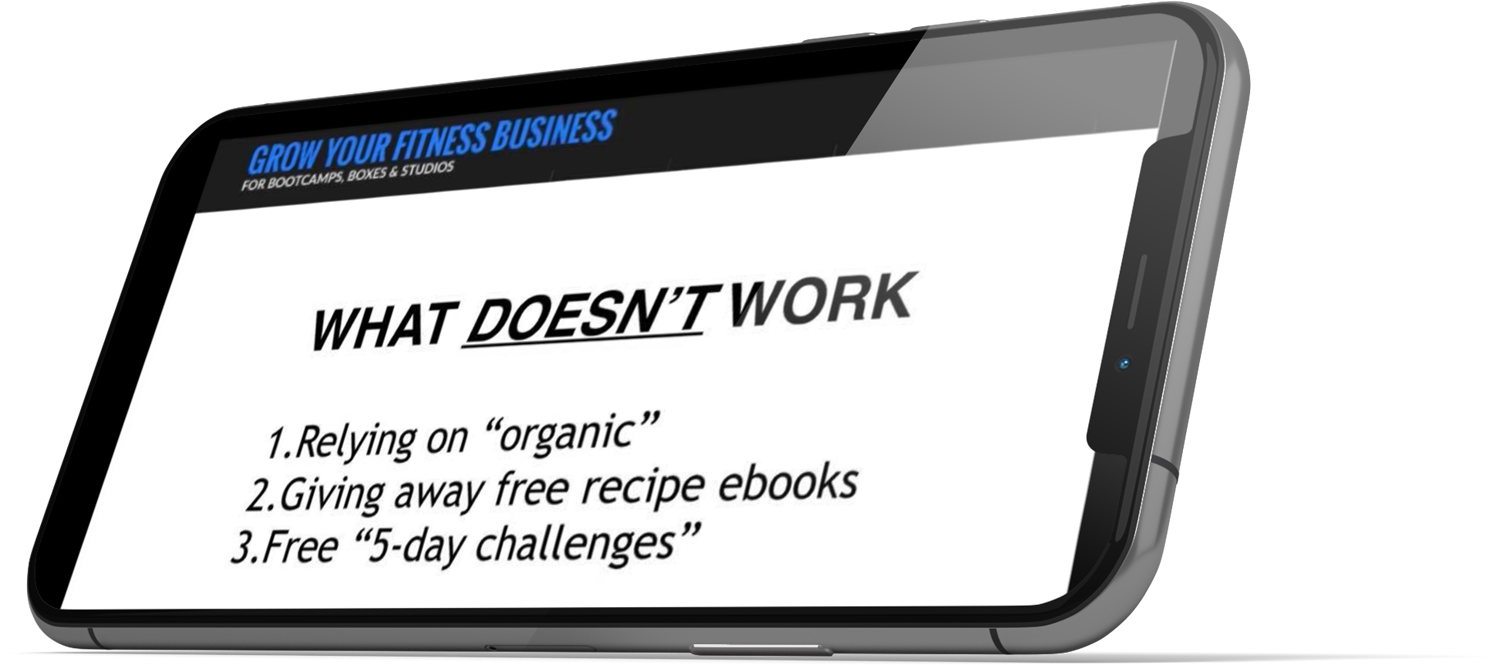Taking a brand new coaching or consulting practice to $100k revenue is largely about defining “What We Do“.
However. . . if you want to continue scaling past that level, with the help of a team, you need to implement a company culture.
This changes the game in a few ways.
And perhaps the most vital statement you need to define to get to the next bench-mark is:
“Who We Are”
The quicker your company can define and answer “Who You Are”, the sooner you’ll be able to streamline more processes and be more confident and congruent in your offer of value to the world.
Whereas getting to the 6-figure stage depends on throwing a few things at the wall and seeing what sticks, once you define your company culture, you’ll quickly develop an accelerating stride towards an expanding company.
So, how do you determine your company culture?
Here are a few lessons to help you do that:
Know The Leader
It all starts with you.
As my good friend and mentor Sam Bahktiar once taught me:
“Your business is an extension of your DNA.”
I’d never thought of it that way, but I clicked as soon as I heard that statement.
The company, and its core values are direct extensions from you, your personality, and your preferences.
If the company founder / leader is a discipled, to-the-point person, their company will reflect those values in its staff, expectations and policies.
If the leader of the company is analytical and left-brained, the company will work much on metric and data-driven decisions.
If the leader is a designer / inventor, the company will create its products and services based on design and innovation (a la Steve Jobs with Apple).
The first step then is to write definitive answers to the following questions:
- What values do I believe in most?
- What are my biggest, most obvious strengths?
- What qualities am I attracted to in my mentors and role models?
Its also a valuable exercise to list some traits that you are not good at, and tasks you do not enjoy doing.
These tasks and traits – if essential to your company strategy – will form the mould for the next person / people you hire.
Many expert-business owners make the critical mistake of trying to duplicate themselves… when in reality you want someone whose not like you, in order to fill the gaps.
2. Know The Vision
The next step in creating your defining statement of company culture, is to know your vision.
What is the broader message your business is communicating?
What is the bigger-picture possibility you believe you can help create in the world?
What is the story behind why your company is here, working so hard?
Without that why, you cannot lead a team. You cannot inspire a culture. And you most likely will not stay in the game when things get tough.
The desire for money alone might spur you through the first $100k revenue… but to scale beyond that into a 7-figure coaching business requires a different motivator.
When you – and your team – are clear in the vision of the company, everyone has a sense of purpose and contribution. Everybody wants to be part of “something bigger”, and you’ll find that not only will this help you retain good talent on your team, but will attract engagement and prospects for your services too.
3. Know Your Core Values
The third step in creating a definitive company culture is through your core values.
Think about what qualities and traits you determine to be essential to join your company.
To do this, think of your team (or potential future team if you’re still a solopreneur) as your next family.
Now, what would someone have to posses to become part of your family?
When I first made this list, I came up with the following core values for Expert-Business consulting:

This is a solid description of the culture at our company as it continues to grow, and a reflection of me personally.
My business philosophies revolve around customer service, which breeds a non-negotiable need for results and experience.
My spiritual beliefs are inclined towards thinking and acting abundantly, even before evidence of abundance has presented itself (faith).
And finally, growth and financial responsibility are strong values of mine that I don’t shy away from. I meet many coaches who talk about growth all day, yet believe the subject of money is “icky”.
Not surprisingly, those coaches don’t make much money.
Whatever your beliefs around money and compensation are, the truth is you’re a business owner now, and need to take financial education seriously.
Start Thinking About This Now…
Whether you’ve crossed the 6-figure mark or you’re almost there, start thinking about these exercises today.
Better yet, do them today!
You cannot start planning for the company culture earlier enough.
Most coaches say, “I’ll do that stuff when my company is big enough,”
Yet they don’t realize that their company won’t become big until they focus on these foundations.
Another way I often teach clients is like this:
You’re business is like building a skyscraper. You have a clear vision of what this big company will look like.
Yet trying to build a skyscraper from the bottom – with no plans of what each floor will look like, is business suicide.
Start with the vision in mind.
Reverse engineer the steps.
Plan for the infrastructure, well before you need to fix the frames and lay the bricks.
Justin Devonshire




